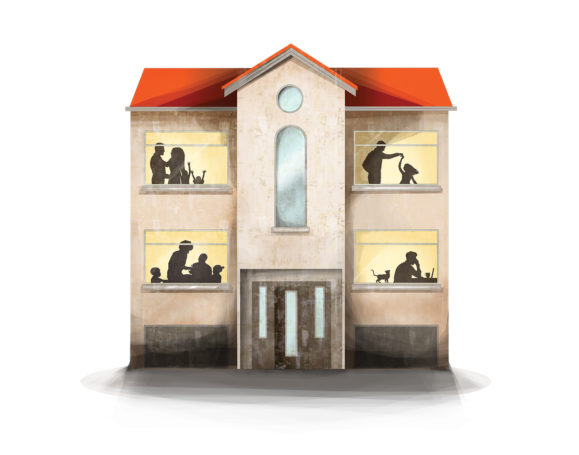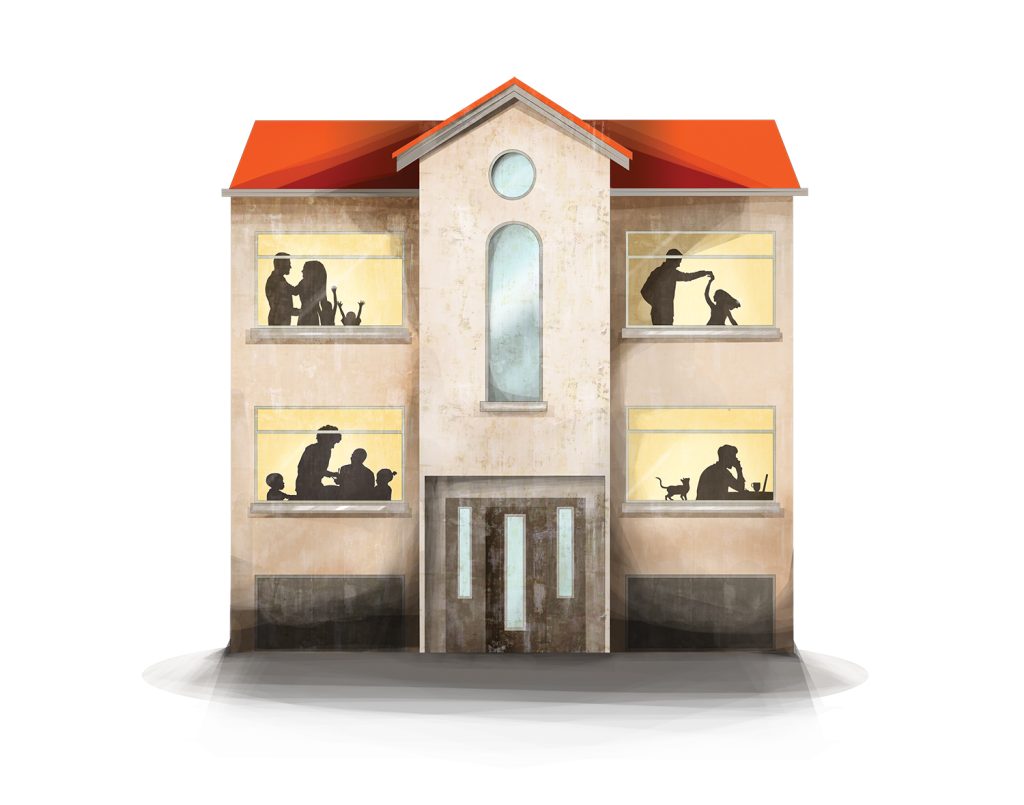The Beyond Food program began at the Edmonton Food Bank when it learned that many of its clients weren’t connected with other services in the community.
“We felt that in order for people to deal with their food insecurity … they really needed solid connections with groups beyond the food bank,” said Marjorie Bencz, executive director of the Edmonton Food Bank.
The idea was born out of surveys done in 2015 and 2018, where food bank clients indicated they needed better relationships with other organizations to help with literacy, education, employment, mental health, food security and more.
When the program launched in November 2018, the Food Bank partnered initially with Canadian Mental Health and the City of Edmonton, which provided staff with expertise in counselling, housing and mental health.

Over time, other partners came forward with free services to offer, such as the Salvation Army helping with taxes and the Learning Centre Literacy Association with reading and writing. Volunteers also pitch in with resume-writing and interview skills, and there have been four job fairs at the Food Bank to match employers with people looking for jobs.
“We’ve always tried to refer people to 211 and other connections, but often, people make a better connection when the person is right there,” Bencz said. “It really is about partnerships and relationships, and we couldn’t do any of this work without other wonderful agencies in the community.”
Bencz is clear that Beyond Food is about building up the community and pointing people in the right direction.
“Our goal wasn’t to take away from anything other groups are doing because we appreciate what they’re doing in the community. We’re just trying to pull those resources a little bit closer to people that need them,” she explains.
Beyond Food is able to operate because of a three-year Edmonton Community Foundation grant under Foundation Directed Initiatives.
“They were really quick to come to the table and respond in a positive way to something that was a little outside the box,” Bencz said. “We’ve really appreciated the relationship with the Edmonton Community Foundation over the years because they’ve always been willing to look at really practical programs that are serving people directly.”
Before the COVID-19 pandemic began, Bencz estimates there were about 16 people a day accessing the Beyond Food services.
The pandemic has made it more challenging to operate, but clients are still able to access services online and can make appointments to come in, instead of the previous drop-in model.
That continuity is crucial for clients in need of support, which is a familiar feeling for program coordinator Wisam Abu Rajab.
When Abu Rajab arrived in Alberta from Dubai five years ago, he was in a similar situation to many of the clients he works with.
He remembers the struggle to find a job and the challenges at the beginning as he tried to settle into his new life.
“So when I see someone who is trying to find a job and they can do that, it makes me feel happy,” says Abu Rajab.
One of the most valuable services they offer, he said, is preparing clients for safety training, to help Edmontonians who are seeking work be more competitive in the job market. That ranges from first aid to forklift and confined spaces training and more.
“We try to train people and help them find a job, so we talk to them about opportunities,” Abu Rajab says. “We want them to be able to rely on themselves so they can help themselves and the community.”
Abu Rajab hopes to see the Beyond Food program continue to grow and offer more opportunities, training and services. As Bencz puts it, it’s really about “touching people’s lives and making it a bit better for them.”
